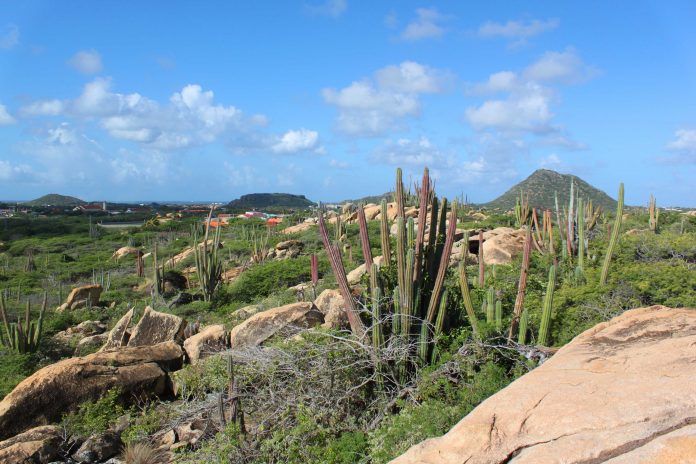Our ultimate goal is to create cultural awareness, promote education, and safeguard our heritage as a sacred seed for renewal, revival and reinvention, guiding our readers to become new guardians of these ancient lands.
The ancestral characteristic of the territory is having right to the land, as collective property enjoyed by the native communities who, in Aruba, are descendants of ancient farmers from the tropical forests of South America, Arawak-speaking people who reached the continental coastal areas and them populated the islands of the Caribbean Sea. Evolving in to highly organized autonomous nations which where very prosperous and completely sustainable.
Aruba`s legendary Caquetio tribe where the people who signed an early treaty with the Spanish crown.
Their indigenous territories covered an geographical area demarked by permanent sacred, social, economic and cultural bouderies inclosing the habitat for and for the peoples activities. Farming corn, beans, squash, yucca, peanuts, tropical vegetables, fruits, cotton. Exploiting the riches of the mangrove forests and the great viriaty of fruits of the sea.
Must imagine that Aruba’s landscape was covered with a great amount of flora and general conditions were much more favorable than today. The landscape and topography of the island in many areas offered perfect layouts that formed zones where people could walk for hours under Arubas mequite forest cannopy, trees that blocked sunlight . Although a small island, there were open grasslands or savannahs covered with cacti and xerophytes, while other areas were made wetlands and salt pans.
A rough estimate of 72% of what remained of a forest covering Oranjestad in the 17th century (starting in the Cumaná area, near the airport, extending up Ponton Hill) were large and ancient Kwihi trees (Prosopis Juliflora) with diameters of 4 to 6 feet of which not a visible trace has been left for the next generetions, as a green approach is not considered by revenue seekers
For the indigenous people, the territory is the embryo that gave rise to the existence of their cultures, morality and their rigth to own their identity.
For the indigenous the relationship with his territory is extremey esential and vitalfor their existance as a cumunity. Today the responsabilty falls on those hiers of these original inhabitants, to raise awareness of these unfathomable resourses that could be lost forever. These indigenous arubans are those who are advocating for a cure for the world and empower by legislating recognition and protection to those desending of the old ones, guardians of our ecosystem and endangered heritage for the next generations to come.
The value of indigenous peoples rights is in their knowlidge since this play a fundamental role in environmental management and development, due to their traditional way and existential practices. Reasons why States must recognize and support their identity, culture and interests which with no doud ficilitate and suppotr sustainable development at its core. So benefits in preserving the island`s culture are enormous andcritical to keeping Aruba’s history alive. This is essential for the construction of identity, collective memories and the mindset of belonging to the natural world.
To conserve this native culture heritage, it is necessary to create a registry that contains the relationship of the different peoples existing in Aruba and implement dissemination strategies to make the society aware of the customs morality of the people.
If you love Aruba its origins and its cultural heritage, be part of the exclusive visitors of this cozy home-atelier called “Etnia Nativa”. This private residential houses collections of native art, archaeological artifacts and historic furniture, while the facilities themselves are the result of the transformation of recycled materials.
Meet the acclaimed columnist at home! Book your visit Whatsapp + 297 592 2702- or mail: etnianativa03@gmail.com.















